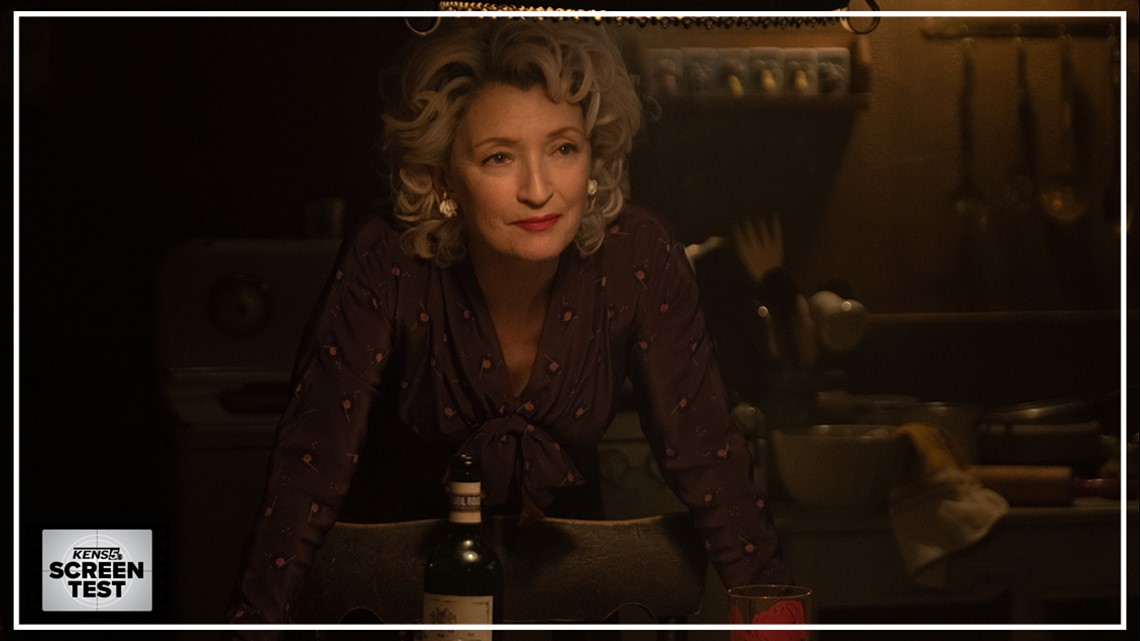[[Note: When "Let Him Go" releases in the U.S., it will largely be at indoor movie theaters during the ongoing coronavirus pandemic. While the purpose of this review goes deeper than binary recommendation to discuss the film's merits as an artistic work in context of its time, we encourage our readers to continue exercising the latest safety guidelines from health authorities and consider them if and when you may decide to visit the cinema to watch this movie.]]
If you live in America and are reading this review, chances are you’re searching for a distraction as Election Day stretches into Election Week and the Hollywood-caliber drama of a mega-consequential campaign’s ending peaks with every passing hour. “Let Him Go,” out now in some theaters, is almost certainly not as gripping as watching the cable news needle, but what Thomas Bezucha’s new film may instead provide is the closest thing to an electorate-unifying image in the pure form of Diane Lane and Kevin Costner trading gentle barbs while driving across a lavishly photographed frontier somewhere between redwood forests and gulf stream waters. As the unassuming Margaret and George Blackledge, they’re en route to retrieve their grandson from an abusive domestic situation his mother married into after the death of the Blackledge’s own son, a foundational event we witness in the movie’s opening. And as the soft twang of a guitar accompanies them, so does a stormy inevitability loom on the horizon, even as promising blue skies shine overhead.
“Let Him Go,” among many other things, is a patient study of a marriage; a lightly subversive neo-Western; and a violent examination of loyalty to bloodlines over lawful union. There are times when it comfortably slips into what I expect most would call a “traditional” picture, and by that I mean the kind of movie centered on a singular mood and purpose that its audience can feel its way around for a couple hours. Here, that expectation forms the first act as Margaret and George – a long-married couple of few words but bursting with the natural goodwill afforded by our decades of experience with the actors filling their shoes – watch their former daughter-in-law, Lorna (Kayli Carter), marry her new man, Donnie Weboy (Will Brittain), after the death of her former husband. Observing from a place of wrenching melancholy and dutiful selflessness, the real reason the Blackledges are invested is standing by their side, in the form of young Jimmy Blackledge.
He’s also the impetus for the Blackledges lurching into action, after Margaret happens upon Donnie one day hitting his wife and stepson while driving around town. Melancholy turns to concern, and concern catapults into urgency when an attempt at confrontation is met with the discovery that the fragile new family has left town to live with the Weboy clan some miles away. A charge is given to the movie’s drama as Margaret and George set off to reclaim their grandson; after all, in a mirroring of the title’s somber double entendre, Jimmy also represents the last flesh-and-blood link to their son.
As they make their way to the Weboys, Bezucha begins to experiment with the restrained energy that we’d settled into, and his gracefulness is a bit inconsistent when providing slack to the plot’s immediacy. On the one hand, it allows the particulars of Margaret and George’s dynamic to illuminate a union that’s as all-American as it gets; watching George habitually go into a liquor store while Margaret waits patiently outside is a telling hint to their easygoing relationship. But things get whipped back into suspense mode when George – initially reluctant to undertake the mission – finds that Margaret has brought along a pistol. You know, just in case things get dicey.
Rest assured that they will. If the painterly landscapes of rural mid-1900s America are indicative of the Blackledges’ sincerity, the hair-raisingly busy production design of the Weboys’ cramped country home is a corrupt arena. Presiding over it is Lesley Manville’s extraordinarily memorable Blanche Weboy, whose insistence that the Blackledges sit and enjoy some pork chops is more a veiled call to arms than a warm invitation extended to loosely connected relatives. By this point, it’s only a matter of time before the trigger on Margaret’s gun is pulled.
“Let Him Go” becomes a dexterous work from here on out; a soulful, eerie and finally explosive yarn of familial conflict whose sensibilities tend to grate against each other as characters deliver slippery ultimatums. Meditative interactions overlap with thunderclaps of genre intrigue—the movie occupies a range of intent as vast as its Montana-set vistas, and it’s a bit awkward when it sometimes seems like two different films are struggling over the same one-square-acre plot of cinematic real estate. More often than not, signs of tonal right-turns from a filmmaker – like the abrupt transition from gentle-eyed drama to white-knuckle tension when the Blackledges and Weboys finally meet – are enough to raise the alarm bells.
Here, admirably, fascinatingly and obtrusively, “Let Him Go” tries to tie a juggling of genre to its thematic interests. Bezucha’s filmmaking is fueled by intentional contrasts that finds him eager to smash together ideals of decency and deeply rooted cruelty; nowhere in his screenplay is that more evident than in the juxtaposition of the Blackledges and Weboys, who adhere to their respective archetypes with strict vitality. It’s just as key to the film that Lane and Costner could be right at home in “Little House on the Prairie” that Manville’s Blanche feels like an excised background character from a Coen Brothers’ script—from her cartoonishness monologuing and volatile presence right down to the way she balances a ten-gallon wig on her head. As a key exchange in the movie goes: “That’s pretty tangled, isn’t?” “Family usually is.”


It’s an interesting attempt to spin substance from a medley of priorities, and Bezucha’s aspirations end up varying in their success. The script is intricately plotted but driven by simple motivations, and while the writer-director’s Western-tuned interest in fate is as evident as a bloodstain slowly seeping through a cotton shirt, the writing isn’t astute enough to prevent Jimmy from succumbing to his own fate as a living, breathing MacGuffin.
Perhaps because the story fluctuates distractedly between plain-stated and pulp, what most commands our attention are the central performances, which here range from great to superb. Lane and Manville fall into the latter category, forming two sides of a triumvirate of matriarchal struggle; rounding it off is Carter’s Lorna, whose timid nature and tendency to conform to the wills of those around her represents a roughly hewn antithesis to her two mothers-in-law. In a genre defined by the suspect impulses of man, “Let Him Go” reveals itself as a skirmish of motherly instincts that nonetheless arrives at a similar place of carnage. Like its protagonists, the movie remains strong-willed and physically captivating, but it’s also a bit too one-dimensional to feel the heat from the climactic wreckage.
"Let Him Go" is rated R for violence. It's available to watch now in some theaters.
Starring: Diane Lane, Kevin Costner, Lesley Manville, Kayli Carter
Directed by Thomas Bezucha
2020
OTHER SCREEN TEST REVIEWS:
- ‘Kindred’ Review: A finely crafted, vaguely familiar thriller that would make Edgar Allen Poe proud
- ‘Come Play’ Review: Techno-boogeyman thriller offers routine scares, roughly drawn sentimentality
- ‘Holidate’ Review: Emma Roberts, Luke Bracey star in Netflix’s sardonic attempt at subverting Hallmark Channel sentimentality
- ‘On the Rocks’ Review: Sofia Coppola’s familial drama finds casual tenderness in fractured connections
- 'The Witches' Review: Robert Zemeckis's redundant update of Roald Dahl's fantasy belongs on the back of a cereal box
- ‘The Trial of the Chicago 7’ Review: A stellar cast boosts Aaron Sorkin’s simplified courtroom epic
- ‘Time’ Review: One of 2020’s greatest documentaries is a vivid portrait of emotional endurance and mass incarceration’s specters



